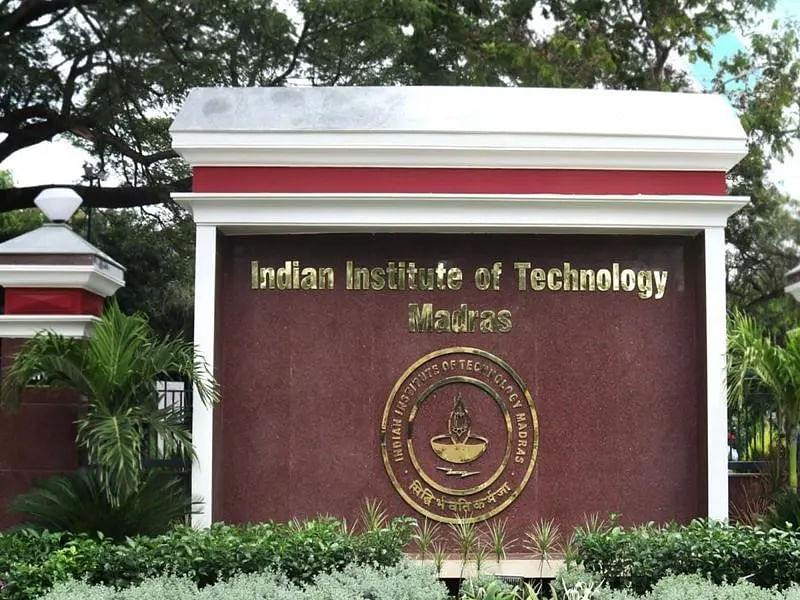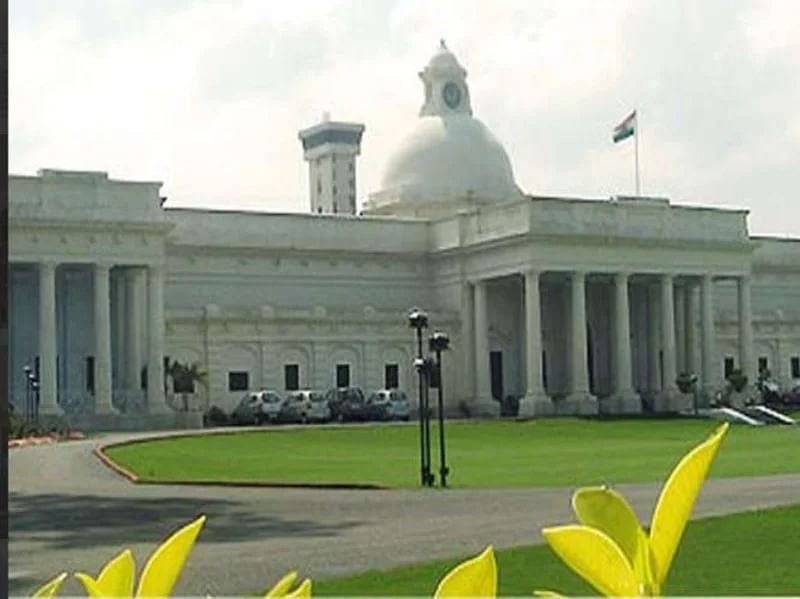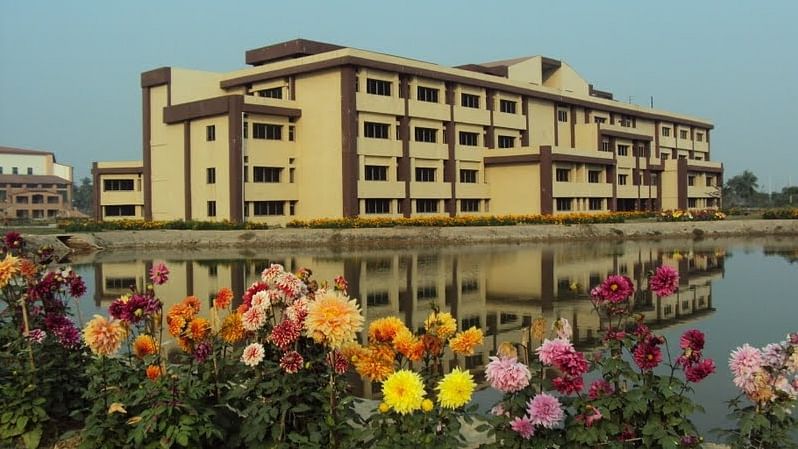M.Sc Physics

M.Sc. Physics is a two-year-long postgraduate course that deals with the study of matter, quantum optics, lasers, solid-state physics, materials science, high-energy physics, nonlinear optics, etc. M.Sc. Physics courses in India prepare students for a wide range of job opportunities, such as secondary school teacher, lecturer, speaker, technical writer, embedded software engineer, chartered physicist, and many more.
Table of Contents
- About M.Sc Physics Course
- Eligibility Criteria for M.Sc Physics Course
- Who Should Pursue M.Sc Physics Course?
- How To Get Admission in a M.Sc Physics Course?
- Types of M.Sc Physics Course
- Popular Entrance Exams for M.Sc Physics
- Top 10 M.Sc Physics Course Colleges in India
- Study M.Sc Physics Abroad
- Fee Structure For M.Sc Physics
- Syllabus and Subjects for M.Sc Physics Course
- Why Choose the M.Sc Physics Course?
- M.Sc Physics Course Comparison
- Preparation Tips for M.Sc Physics Course
- Scope For Higher Education
- M.Sc Physics Course Salary in India
- Career Options After M.Sc Physics Course
- Skills That Make You The Best M.Sc Physics Graduate
M.Sc Physics Course Details
| Degree | Masters |
| Full Form | Master of Science in Physics |
| Duration | 2 Years |
| Age | No age limit |
| Minimum Percentage | 50% |
| Average Fees | ₹20K - 1.5 LPA |
| Average Salary | INR 4.5-10 LPA (Source: PayScale) |
| Employment Roles | Secondary School Teacher, Lecturer, Speaker, Physics Teacher - Postsecondary, Technical Writer, Embedded Software Engineer, Teaching Assistant, Process Improvement Manager, Analytics Consultant |
| Top Recruiters | Tata Consultancy Services Limited, HSBC Glti, MT Educare Ltd., CSA Group Inc., Dell Inc., Sita Corp, EY (Ernst & Young) and more |
About M.Sc Physics Course
The specialization falls under the umbrella of M.Sc. An M.Sc Physics course has a duration of two years, and the course full form is Master of Science in Physics. The M.Sc Physics syllabus and subjects covers vast knowledge from mathematical methods to statistical mechanics which ensures that the students receive a sound understanding of Physics and its principles.
M.Sc Physics job scope is extensive, giving students employment opportunities in both public and private sectors.
Eligibility Criteria for M.Sc Physics Course
For admission in the M.Sc Physics, the eligibility includes that the students applying to this course must hold a bachelor’s degree from an accredited university. M.Sc in Physics eligibility criteria states that students must have passed their 10+2 examination with at least 50% in the former subject from a recognized board and there is no age limit. According to the M.Sc Physics eligibility criteria in India, applicants to this course must take an entrance exam.
Who Should Pursue M.Sc Physics Course?
M.Sc Physics is a two-year course that deals with the study of matter, quantum optics, lasers, solid-state physics, materials science, etc. This course is meant for those who want to pursue a career in the field of latest physics techniques that can be applied to all fields of analysis and study of high energy physics. A student with a minimum of 50% marks in their graduation can pursue the course.
When To Pursue M.Sc Physics ?
Students who wish to pursue a career in energy, technology, research, etc. can pursue M.Sc in Physics after finishing graduation. The admission is made based on the marks obtained on the merit/entrance test.
How To Get Admission in a M.Sc Physics Course?
Online and offline applications for admission are both acceptable. Graduates of universities or colleges offering the degree can earn an M.Sc in Physics. Admission to M.Sc Physics course colleges in India is determined by national-level entrance exams or college-level entrance exams. M.Sc Physics admissions 2021 in Indian universities and colleges are primarily based on merit. Students can obtain an application for admission from the university’s website or at one of the colleges that offer M.Sc Physics. The general admission process includes the following components:
How to Apply for an M.Sc Physics Course?
Admission for M.Sc in Physics course information can be found on the college’s website. On the M.Sc Physics college's website, students can apply for admission to the M.Sc Physics course. Paying the course fee follows the submission of an online application.
Selection Process
Admissions are based on a candidate's final grade. Students who meet the eligibility requirements and clear the minimum cutoff scores of the respective college are eligible to apply. A university that offers M.Sc Physics in India provides information about the students who made it to the selection list on their official website. Students receive their final results by email or via the college’s official website. Candidates with a strong understanding of physics are also encouraged to apply.
Types of M.Sc Physics Course
Aspirants can pursue the M.Sc Physics course in the full-time or part-time mode. Below are the types of M.Sc Physics courses in detail:
Full-Time M.Sc Physics
The full-time M.Sc Physics program is typically for two years, where students will have to attend classes in person, submit assignments, and write their exams on campus. The advantage of a full-time M.Sc Physics course is that students will gain a lot more exposure, experience, and knowledge through direct interaction with their peers and faculty.
Part-Time M.Sc Physics
The part-time M.Sc Physics course is designed for students who cannot attend regular classes. Part-time courses either entail weekend or night classes or online classes, depending on the type of course. The advantage of the part-time M.Sc Physics course is that students can pursue this course while simultaneously being engaged in employment, research, etc.
Distance M.Sc Physics
Many universities and colleges in India offer the Distance M.Sc Physics course. This course is designed for students who cannot afford to attend classes on-campus or those engaged in some form of employment and cannot take time out to pursue a full-time course.
Popular Entrance Exams for M.Sc Physics
M.Sc Physics degree may be offered at certain colleges and universities based on their admission criteria. Best University for M.Sc Physics in India that offers this course requires an entrance exam for admission.
Studying the exam pattern can also help students pass the master’s degree entrance exam. In order to enroll in an M.Sc Physics course, students must take a national, state, or college-level entrance exam. The entrance exams and cutoff marks of universities and colleges might be different. The following are some of the most popular M.Sc Physics entrance exams:
A Quick Glance at the M.Sc Physics Entrance Exams
The M.Sc Physics syllabus and exam pattern should be familiarized to students before taking the entrance exam. The students will have a better chance of passing the entrance exams. An entrance exam generally follows the following format:
- There are 100 objective-type questions in the paper.
- The exam lasts for three hours.
- The question paper is in English.
- The questions will be divided into two sections.
- There are questions related to science and mathematics in the first section of the paper (based on class 12).
- The second part consists of questions related to physics, botany, chemistry, zoology, geology, and mathematics at the undergraduate level.
- Correct answers will be rewarded with 1 to 4 marks.
- There is no negative marking for incorrect answers.
Top 10 M.Sc Physics Course Colleges in India
The courses are offered at a large number of M.Sc Physics colleges across the country. Students who are interested in learning about materials science and high energy physics may enroll in the M.Sc Physics course. The top university for M.Sc Physics in India prepares students for success in their fields. The following are the top 10 universities in India for M.Sc Physics that offer postgraduate degrees in physics:
|
SI.No |
List of Colleges |
Average Fees |
|
1 |
Loyola College, Chennai |
INR 13,000 PA |
|
2 |
Jamia Millia Islamia University, Delhi |
INR 9,000 PA |
|
3 |
INR 19,000 PA |
|
|
4 |
Mithibai College of Arts, Mumbai |
INR 50,000 PA |
|
5 |
INR 17,000 PA |
|
|
6 |
INR 18,000 PA |
|
|
7 |
INR 15,000 PA |
|
|
8 |
INR 16,554 PA |
|
|
9 |
Christ University, Bangalore |
INR 68,000 PA |
|
10 |
Fergusson College, Pune |
INR 44,000 PA |
Top M.Sc Physics Colleges in New Delhi
Check the table below for the top M.Sc Physics colleges in New Delhi:
|
Sl.No |
Institution |
|
1 |
Sri Venkateswara College |
|
2 |
Miranda House |
|
3 |
Hindu College |
|
4 |
Hansraj College |
|
5 |
Jamia Millia Islamia University |
Top M.Sc Physics Colleges in Pune
Check the table below for the top M.Sc Physics colleges in Pune:
|
Sl.No |
Institution |
|
1 |
Fergusson College |
|
2 |
Savitribai Phule Pune University |
|
3 |
Yashwantrao Mohite College of Arts, Science and Commerce |
|
4 |
Sir Parashurambhau College |
Top M.Sc Physics Colleges in Chennai
Check the table below for the best M.Sc Physics colleges in Chennai:
|
Sl.No |
Institution |
|
1 |
Loyola College |
|
2 |
Presidency College |
|
3 |
Madras Christian College |
|
4 |
Women’s Christian College |
Top M.Sc Physics Colleges in Bangalore
Check the table below for the best M.Sc Physics colleges in Bangalore:
|
Sl.No |
Institution |
|
1 |
Christ University |
|
2 |
Jain University |
|
3 |
The Oxford College of Science |
|
4 |
St.Joseph College |
Top M.Sc Physics Government Colleges
There are several top Government Colleges offering quality M.Sc Physics course across the country. Check the table below for the top M.Sc Physics government colleges in India:
|
Sl.No |
Institution |
|
1 |
Savitribai Phule Pune University |
|
2 |
Miranda House, New Delhi |
|
3 |
Jamia Milia Islamia University, New Delhi |
|
4 |
Presidency College, Chennai |
Top M.Sc Physics Private Colleges
India has seen significant growth in the number of quality M.Sc Physics private colleges that offer some of the best course in the country. Check the table below for the top M.Sc Physics private colleges in India:
|
Sl.No |
Institution |
|
1 |
St. Xavier’s College, Kolkata |
|
2 |
Christ University, Bangalore |
|
3 |
St.Joseph College, Bangalore |
|
4 |
Madras Christian College (MCC), Chennai |
|
5 |
Fergusson College, Pune |
Study M.Sc Physics Abroad
One of the courses that many students choose because of the employment options it provides is a Master of Science in Physics or M.Sc Physics. After completing M.Sc Physics overseas, students can pursue roles in education that pay well and continue to advance in their careers. Below are some of the top M.Sc Physics colleges abroad and the relevant fees structure.
Top M.Sc Physics Colleges Abroad
The table below contains the list of some of the best colleges abroad for M.Sc Physics:
|
Institution |
Average Fees |
|
University of Montreal, Canada |
CAD 15,000 |
|
University of Alberta, Canada |
CAD 17,000 |
|
University of Melbourne, Australia |
AUD 27,000 |
|
University of Cambridge, UK |
GBP 29,000 |
|
Imperial College London, UK |
GBP 34,758 |
|
University of Leeds, UK |
GBP 24,820 |
|
University of California (Los Angeles) |
USD 30,249 |
|
University of Texas, USA |
USD 30,000 |
Top M.Sc Physics Colleges in USA
The table below contains the list of top M.Sc Physics colleges in the USA:
|
Sl.No |
Institution |
|
1 |
University of Illinois |
|
2 |
University of California |
|
3 |
University of Texas |
|
4 |
Stanford University |
|
5 |
Georgia Institute of Technology |
Top M.Sc Physics Colleges in the UK
The table below shows the top colleges in the UK for M.Sc Physics :
|
Sl.No |
Institution |
|
1 |
University of Leeds |
|
2 |
Imperial College London |
|
3 |
University of Cambridge |
|
4 |
University of Glasgow |
Top M.Sc Physics Colleges in Canada
The table below shows the top colleges in Canada for M.Sc Physics:
|
Sl.No |
Institution |
|
1 |
University of Guelph |
|
2 |
University of British Columbia |
|
3 |
University of Ottawa |
|
4 |
University of Montreal |
|
5 |
University of Alberta |
Top M.Sc Physics Colleges in Australia
The list of top M.Sc Physics colleges in Australia is as follows:
|
Sl.No |
Institution |
|
1 |
University of Melbourne |
|
2 |
Flinders University - Adelaide |
|
3 |
Curtin University |
Fee Structure For M.Sc Physics
M.Sc Physics course fees in India vary according to the facilities and infrastructure available at colleges and universities. In India, M.Sc Physics course fees range from INR 20,000-1.5 LPA. The fees for M.Sc Physics courses at government colleges and universities differ from those at private institutions.
The duration and fees of the M.Sc Physics course differ from those for other physics courses for Indian students. The following is a list of the M.Sc Physics course fees for colleges in India that offer this degree:
|
SI.No |
Name of the Institutions |
Average Annual Fees |
|
1 |
Christ University, Bangalore |
INR 68,000 PA |
|
2 |
Women’s Christian College [WCC], Chennai |
INR 47,590 PA |
|
3 |
Ramjas College, Delhi University |
INR 22,023 PA |
|
4 |
Birla College of Arts Science & Commerce, Thane |
INR 20,340 PA |
|
5 |
DAV College, Chandigarh |
INR 50,120 PA |
|
6 |
Vimala College, Thirssur |
INR 8,100 PA |
|
7 |
Ramnarain Ruia College [RRC], Mumbai |
INR 27,920 PA |
|
8 |
St Wilfred’s PG College [SWPGC], Jaipur |
INR 38,000 PA |
|
9 |
Manipal University [MU], Manipal |
INR 1.78 LPA |
|
10 |
Aligarph Muslim University [AMU], Aligarh |
INR 17,960 PA |
Syllabus and Subjects for M.Sc Physics Course
The M.Sc Physics full form is Master of Science in Physics, and it is a two-year course. An M.Sc Physics course is divided into four semesters to allow students to study at their own pace. As part of the M.Sc in Physics course, students study materials science and high energy physics. M.Sc Physics syllabus and subjects are designed to prepare students to learn and use physics techniques.
The curriculum includes core and elective subjects such as classical mechanics, biophysics, thermodynamics, and statistical mechanics. The following topics will be covered in the M.Sc Physics course:
- Mathematical Methods
- Quantum Mechanics
- Solid State Physics
- Atomic Spectroscopy
- Relativity and Cosmology
- Radiation Theory
- Statistical Mechanics
- Computer Application in Physics
- Astrophysics
- Classical Mechanics
Read More About M.Sc Physics Syllabus & Subjects
Why Choose the M.Sc Physics Course?
A student often wonders about the details of the M.Sc Physics course before choosing one. In the process of choosing a career, students commonly ask “ What is M.Sc Physics?” and “M.Sc Physics How many years?”. In order to provide students with an answer, we summarized the following three points:
What M.Sc Physics Course is All About?
M.Sc Physics full form is Master of Science in Physics. The course duration is of two-years. M.Sc Physics prepares students for careers in banks, space, healthcare, energy, technology, meteorology, college, and business.
M.Sc Physics course deals with the study of matter, quantum optics, lasers, solid-state physics, materials science, high energy physics, nonlinear optics, etc. By the end of the course, students will have advanced knowledge, skills, and modern technologies that they can apply to physics processes. Several colleges and universities offer these courses with good training and learning methods. The M.Sc Physics course covers the latest physics techniques that can be applied to all fields of analysis and study of high energy physics.
What Does a M.Sc Physics Graduate Do?
Students who hold an M.Sc in Physics have many career options, including public and private industries. As a result of studying physics, students can become more productive at work since they acquire a great deal of knowledge. Working professionals can hone their skills and earn money at the same time. M.Sc Physics graduates can work as Secondary School Teacher, Lecturer, Speaker, Physics Teacher - Postsecondary, Technical Writer, Embedded Software Engineer, Teaching Assistant, Process Improvement Manager, Analytics Consultant, Research Analyst, Probationary Officers, Geophysicist, Scientists/Researchers, Astronaut, and Chartered Physicist.
Research Analyst: Research analysts collect, analyze, interpret, and present data related to markets, operations, finance/accounting, economics, customers, and other information related to the field they work in. A research analyst should not only possess excellent financial acumen but also possess excellent analytical skills. Research analysts often work with raw statistics and have to draw their own conclusions.
Reasons Why M.Sc Physics Course Can Fetch You a Rewarding Career?
Graduates of the M.Sc Physics degree pursue exciting and successful careers in pharmaceutical companies, government hospitals, medical research labs, environment protection companies, defense services, physics research labs, radiation protection centers, oil and gas companies, energy companies, banks, space, healthcare, energy, technology, meteorology, college, and business. Both private and public industries hire M.Sc Physics graduates.
Career Scope and Options: Graduating physics students will likely work in rapidly developing companies that develop high-energy physics techniques. The demand for graduates with a broad range of skills increases as technology advances. Additionally, Indian students have the opportunity to work at companies like Tata Consultancy Services Limited, HSBC Glti, MT Educare Ltd, CSA Group Inc, Dell Inc, Sita Corp, EY [Ernst & Young].
Read More About M.Sc Physics Jobs
M.Sc Physics Course Comparison
M.Sc Physics stands for Master of Science in Physics and is typically catered to students interested in and inclined towards matter, quantum optics, lasers, solid-state physics, materials science, etc. Below is a comparison of the M.Sc Physics course with other courses:
M.Sc Physics vs M.Sc Applied Physics
The table below showcases the differences between M.Sc Physics and M.Sc Applied Physics:
|
Course |
M.Sc Physics |
M.Sc Applied Physics |
|
Full Form |
Master of Science in Physics |
Master of Science in Applied Physics |
|
Stream |
Science |
Science |
|
Course Duration |
2 years |
2 years |
|
Eligibility |
Graduation with 50% aggregate |
Graduation with 50% aggregate |
|
Entrance Exams |
NUEE, BHU PET,DUET, BITSAT. |
IIT JAM (Joint Admission Test) ,NIPER JEE, etc |
|
Top Colleges |
St. Xavier’s College, Christ University, Presidency College Chennai |
IIT Kharagpur, Manipal University, NIMS University |
|
Fees |
INR 20,000 - 1.5 LPA |
INR 5,000- 5 LPA |
Preparation Tips for M.Sc Physics Course
To enroll in an M.Sc Physics course as a career option, students must be well prepared. The following tips should be followed by students seeking admission to the M.Sc Physics course:
Prepare a Study Plan: Students need to develop a proper study plan if they are to pass their test. By preparing, students will be able to reduce unnecessary pressure and receive adequate training. A student’s time should be allocated according to the strength and weaknesses of each subject. Previous year’s question papers can help students prepare and give an idea of the exam pattern and syllabus.
Tips for preparing for the exam: Candidates should have a thorough understanding of the subjects. Students can understand the course’s key points by understanding the basics.
Exam Paper Pattern and Syllabus Knowledge: Students who understand the exam paper pattern and syllabus of the M.Sc Physics course will do better on the entrance exam.
Time Management: The key points should be kept in mind, particularly the weaker subjects and daily practice of difficult content. Establishing and adhering to a schedule requires dedication and diligence.
Enroll in a Coaching Program: A coaching program is a great way to clear an entrance exam, as tutors will help the students focus on weak areas and develop their understanding.
Practice Makes Perfect: To reduce unnecessary pressure on the day of the exam, candidates should practice and take notes before the exam.
Start Early: Early preparation helps students cover all of the important topics and gives them time to re-examine the syllabus.
Scope For Higher Education
Master of Science in Physics is the full form of the course M.Sc in Physics. Physicists who hold a master’s degree can pursue a doctorate degree. The Master of Science in Physics program offers a variety of options. Moreover, higher education can help students pursue a career in research or teaching. Students can take the following M.Sc Physics courses list after completing their course:
- M.Phil in Physics
- PhD in Applied Physics
- PhD in Biophysics
- PhD in Chemical Thermodynamics
- PhD in Nuclear Physics
- PhD in Physics
M.Sc Physics Course Salary in India
Graduates with an M.Sc in Physics can expect to earn INR 4.5-10 LPA (Source: PayScale), which increases with experience. Graduates of this program will have a variety of career options.
Read More About M.Sc Physics Salary
Career Options After M.Sc Physics Course
Graduates of the M.Sc Physics program can choose from a wide range of careers. Physics students gain both practical and theoretical skills that will help them in their careers. Graduates of M.Sc Physics programs are qualified for jobs in top energy companies.
Students who complete this program will be able to add their qualifications, thereby increasing their employability. Graduates of this program can work as Probationary Officers, Geophysicists, Scientists/Researchers, Astronaut, and Chartered Physicist. Students who earn M.Sc Physics can work as:
- Research Fellow
- Research Scientist
- Medical Physicists
- Radiation Physicists
- Research Associate
- Online Tutor
- Physics Training Manager
- Software Engineer
- Network Administrator
- IT Consultant
- Security Expert
- Java Developer
- Interface Engineer
Skills That Make You The Best M.Sc Physics Graduate
Graduates of M.Sc Physics degree should possess analytical skills and observation skills. Learning skills based on students’ interests can also influence their careers. Students' analytical skills and the ability to learn new high-energy physics approaches are essential for success. Graduates of M.Sc Physics are expected to possess the following skills:
- Patience
- Attention to detail and accuracy
- Scientific skills
- Observation skills
- Problem-solving skills
- Determination
- Analytical skills
- Work as a team
- Research skills
- Fluent in using scientific equipment
- Very good mathematical skills
- Programming skills
- Modeling and simulation
- Quality control protocol
- Strategic communication skills
























